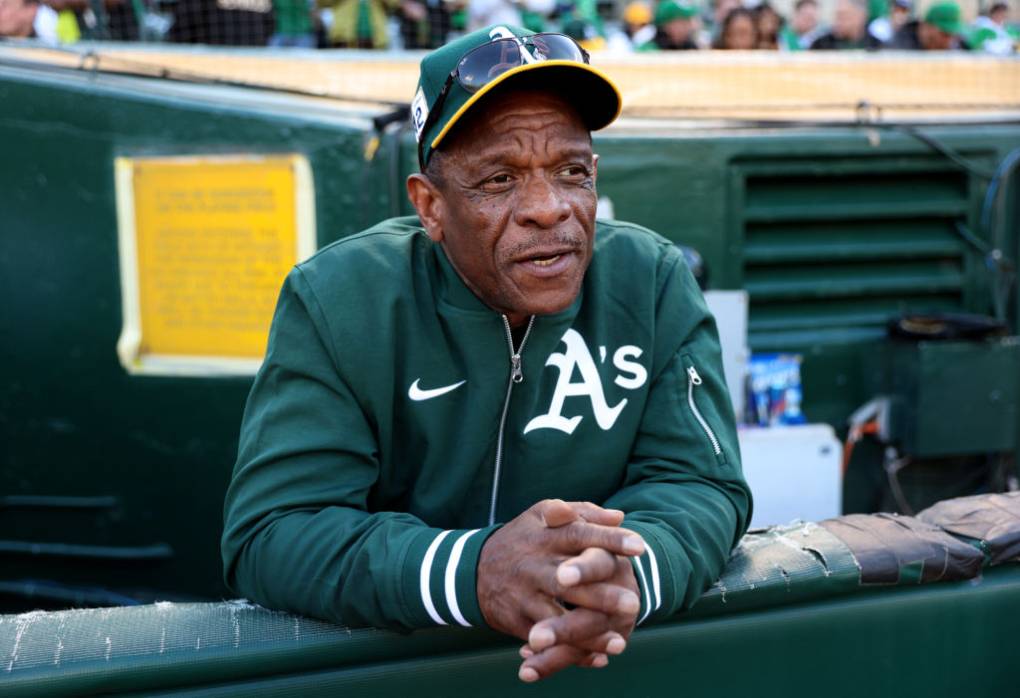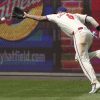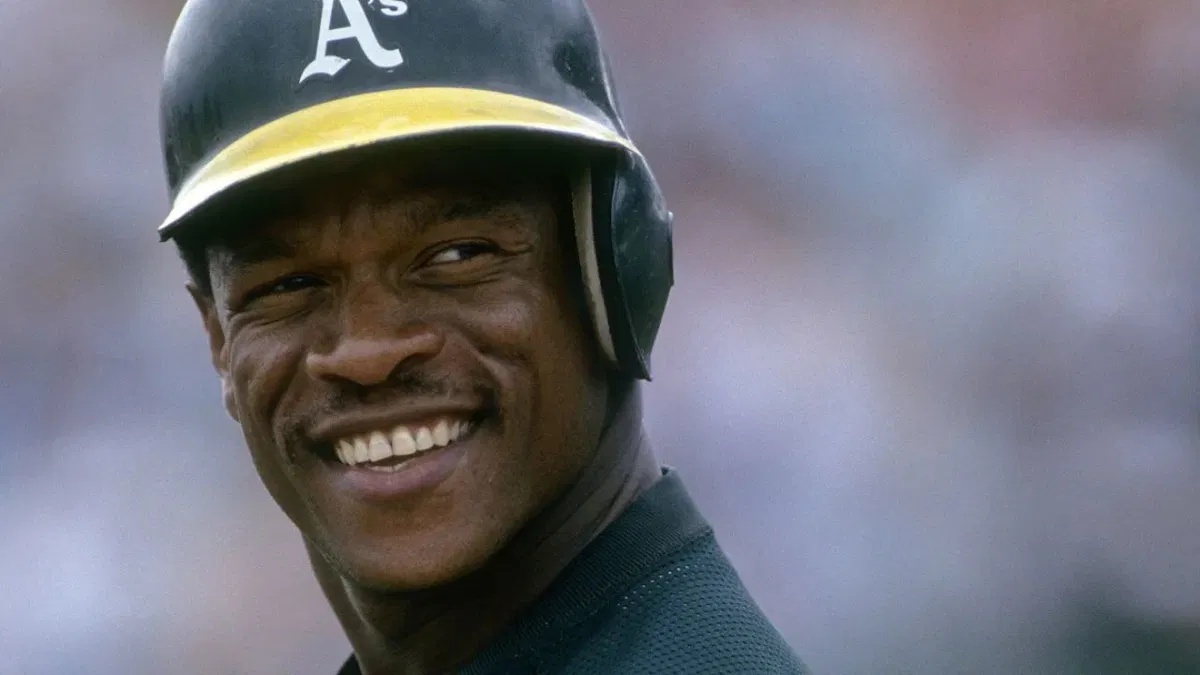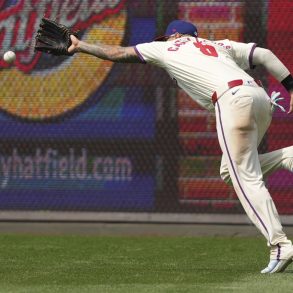Rickey Henderson, widely regarded as Major League Baseball’s greatest leadoff hitter and base stealer, passed away Friday at the age of 65.
Renowned for his lightning speed, sharp eye, and surprising power, Henderson’s electrifying presence on the field was matched by his iconic confidence, which carried him from the sandlots of Oakland, California, to the Baseball Hall of Fame.
On Saturday evening, Henderson’s family released a statement confirming his death.
“Rickey was a legend both on and off the field—a devoted son, father, friend, grandfather, brother, uncle, and an inherently humble soul,” read the statement from his wife Pamela and his three daughters.
“He lived his life with integrity, and his love for baseball was unmatched. Rickey is now at peace with the Lord, cherishing the incredible moments and milestones he leaves behind.”
While the family did not disclose the cause of death, they expressed gratitude to the UCSF hospital staff for their dedicated and compassionate care.
Henderson’s bold and flamboyant style of play captivated some and irked others. Known for injecting theatrical energy into a traditionally staid sport, he broke barriers and set records over his 25-year career, playing for nine different teams.
Henderson rewrote the history books with an unparalleled 1,406 career stolen bases, 468 more than previous record-holder Lou Brock.
He also holds the single-season stolen base record with 130 in 1982 and led the league in steals 12 times, including seven consecutive years. Even at 39 years old in 1998, Henderson led the American League in stolen bases with 66.
In addition to his speed, Henderson possessed an impressive power-hitting ability, tallying 297 home runs throughout his career, including a record-setting 81 leadoff home runs.
His dynamic abilities earned him 3,055 career hits, and he retired as MLB’s all-time leader in stolen bases, runs scored (2,295), and walks (2,190)—though Barry Bonds later surpassed him in walks.
Henderson also earned 10 All-Star selections and achieved a remarkable 111.1 Wins Above Replacement (WAR), placing him third among players over the past half-century, behind only Bonds and Alex Rodriguez.
Henderson was inducted into the National Baseball Hall of Fame in 2009, earning votes from 94.8% of the electorate.
His contributions to the sport prompted Hall of Famer Reggie Jackson to declare, “Rickey wasn’t just great. That doesn’t say enough for me. He’s one of the top 10 to 12 players of all time. That’s how good Rickey was.”
MLB Commissioner Rob Manfred described Henderson as “the gold standard of base stealing and leadoff hitting” in a statement issued Saturday.
“Rickey epitomized speed, power, and entertainment, setting the tone at the top of the lineup. His legacy inspired recent rule changes encouraging more stolen base attempts.
On behalf of Major League Baseball, I extend my deepest condolences to Rickey’s family, friends, former teammates, A’s fans, and baseball enthusiasts everywhere.”
Over his illustrious career, Henderson played four separate stints with his hometown Oakland Athletics, winning World Series championships in 1989 with Oakland and 1993 with Toronto.
He redefined the leadoff hitter’s role, bringing unprecedented power and dynamism to the position. Henderson won the American League MVP award in 1990, a season where he tied his career-high 28 home runs, stole 65 bases, and hit .325/.439/.577.

Henderson’s career was also defined by his charismatic and show-stopping persona. He celebrated home runs with a distinctive hop, jersey tug, and often a slow trot around the bases.
When he broke Brock’s all-time stolen base record in 1991, Henderson famously hoisted the third-base bag above his head and declared, “I am the greatest of all time.”
Born Rickey Nelson Henley on Christmas Day 1958 in Chicago, Henderson’s speed was evident from the start. Family lore has it that he was born in a car before his parents could reach the hospital.
Henderson later said, “I was born fast.” His mother, Bobbie, moved the family to Oakland when Rickey was 10, where he joined a lineage of legendary Oakland athletes, including Joe Morgan and Bill Russell.
Drafted in the fourth round by the A’s in 1976, Henderson debuted in the majors in 1979. By 1980, under manager Billy Martin, Henderson broke Ty Cobb’s 65-year-old American League stolen base record, swiping 100 bases in 126 attempts.
His electrifying play during the strike-shortened 1981 season helped lead the “Billyball” A’s to the playoffs for the first time in six years.
Throughout his career, Henderson was known for his colorful personality, often speaking in the third person and inspiring legendary anecdotes.
One famous story involved Henderson framing a million-dollar bonus check without cashing it. Despite his unconventional ways, Henderson’s skills and charisma endeared him to younger fans, even as his style challenged baseball’s traditional norms.
After six years in Oakland, Henderson was traded to the Yankees in 1984, bringing his showmanship to a new stage.
He returned to Oakland in 1989, leading the A’s to back-to-back pennants and a World Series title that year. Henderson’s 1989 ALCS performance against Toronto remains one of the most dominant playoff displays in MLB history.
Henderson continued to defy age throughout his career, producing at a high level well into his 40s.
He retired unofficially after the 2003 season, though he often joked that he could still play if given the chance. His wife Pamela recalled him watching games in his 60s and saying, “I can do that.”
MLB Players Association executive director Tony Clark described Henderson as “an American original, in every sense of the term.”
Beyond his records and awards, Clark said, “Rickey captivated crowds with his play and earned a devoted following, especially in Oakland. He inspired future generations with his speed, aggressiveness, and signature neon green batting gloves.”
Rickey Henderson’s legacy as a groundbreaking player, showman, and cultural icon will forever resonate in the history of baseball.







